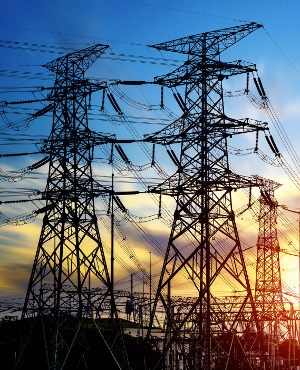
Research shows that, by the time protests spill out onto the streets and turn violent, communities have undergone an extensive process to attempt to reach out to authorities. Often they're not listened to, writes Herman Mashaba.
Over the last few days, I have faced questions about my decision to enter the fray in the ongoing saga between power utility Eskom and Soweto residents, who have been on the receiving end of what appears to be blanket electricity blackouts in large parts of the area.
Among some of the residents affected by the blackouts are paying customers who have been able to provide irrefutable evidence that their Eskom accounts are fully paid.
Included among these paying residents are prepaid customers who have had to endure extended blackouts from as a little as a two weeks to a month or months on end. They should not be suffering this massive inconvenience.
Nonetheless, questions still abound about my involvement in the entire saga.
There could be many reasons for this but perhaps this is because, on the face of it, this impasse appears to be one between Eskom and its customers.
For those who may not know, there are parts of Soweto that are supplied electricity by Eskom and other parts that receive their electricity from City Power – a power utility owned and operated by the City of Joburg.
It would be appear that, in this current impasse, it is those areas which receive their electricity from Eskom who are experiencing extended blackouts.
Advocates for the argument that says the City of Joburg – but me, Herman Mashaba, in particular – should stay out of this matter rely on this minor fact to question why the City is now central to a matter that essentially does not appear to be its concern.
Well, these advocates are wrong.
As I have stated previously, on numerous communications from my office, I have no intention of interfering in or instructing Eskom on how to conduct its affairs.
The power utility says it is owed R18bn by Soweto residents, and probably billions more by residents in other parts of the City, and it has every right to recover these monies. On this score, Eskom has my fullest support.
The issue that has become a major source of concern, and which informs the City's decision to enter the fray, is that the City's infrastructure has become collateral damage in this ongoing battle between Eskom and some of its customers who are not paying for services rendered by the utility.
This is so in more ways than one.
As is often the case with service delivery related protests in South Africa, damage done to infrastructure is often indiscriminate. The need to send a "clear message" to authorities – expressed through the destruction of crucial infrastructure by opportunistic criminal elements – is seen as a last resort in reaction to authorities with an unwilling ear.
Another way our infrastructure is destroyed is through systems failure when Eskom's infrastructure is overloaded.
The City's infrastructure is further impacted during the re-starting phase, following an abrupt failure.
Back to the destruction of infrastructure during community protests. There is ample evidence that communities do not automatically take to violence when protesting.
Research shows that, by the time protests spill out onto the streets and turn violent, communities have undergone an extensive process through which they would have attempted to reach out to authorities - either through the petitions process or through one-on-one engagement between authorities and a structure that has been elected by the community to represent their interests.
Often though, communities are not listened to and an impression is created that authorities don't care.
In other words, a message is inadvertently communicated that authorities have absolutely no intention of attending to the concerns of communities.
I said this much to provincial Eskom officials, during our meeting at Megawatt Park this week, following an earlier engagement with residents of Braamfischerville, Soweto.
Prior to this engagement, there had been rumors across Soweto that, as a result of high levels of non-payment in the township, Eskom had resolved not to repair or maintain its infrastructure there.
Another rumor alluded to Eskom not having money to repair or maintain its infrastructure in Soweto because of non-payment of accounts.
Both rumours were refuted by Eskom provincial officials.
The truth, according to the officials, was that Eskom had every intention to repair and maintain its infrastructure. However, it needed to follow a particular process which includes running an extensive audit, installing prepaid meters and thereafter, reconnect power.
The officials claimed that, in many cases, residents refused Eskom technicians entry to their homes to conduct audits, possibly for fear that illegal connections will be identified and removed.
But the rumours of Eskom's refusal to maintain or repair its infrastructure had gained traction and we feared community anger would be directed at the City's infrastructure.
It soon became clear that Eskom executives needed to be included in our deliberations, hence I requested a meeting with the board.
While it was encouraging to receive positive feedback from the officials, it is important that their actions, at an operational level, are backed up by the board and the shareholder so as to avoid the politics being out of sync with operational imperatives.
But my request for a meeting with the board and the shareholder has not been acceded to.
Either the board is still considering the request or they are determined to punish paying residents in order to enforce payment from those who have been allowed not to fulfil their financial obligations to the power utility.
In the meantime, it is Eskom and the City's infrastructure that faces daily destruction.
- Mashaba is the Executive Mayor of the City of Joburg.




 Publications
Publications
 Partners
Partners

























